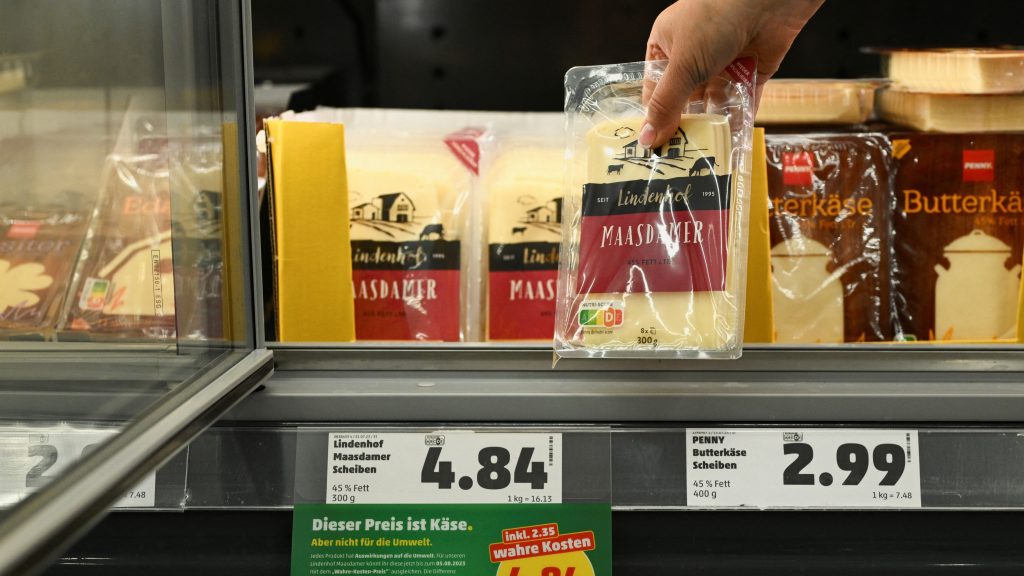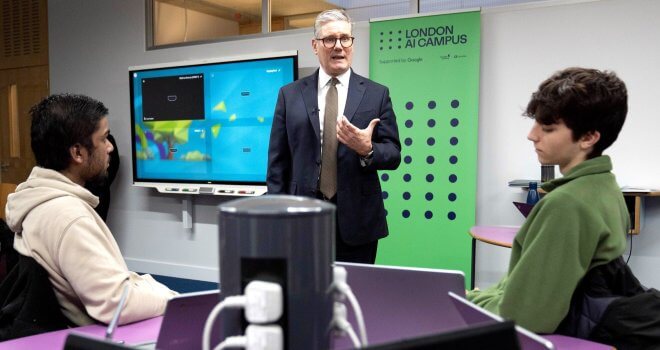German Supermarket Seeks To Charge Shoppers ‘True’ Environmental Cost

German shoppers, who enjoy some of Europe’s cheapest groceries, are being asked this week by discount supermarket Penny to pay extra for some items to cover their “true cost” as it seeks to raise awareness of the environmental price of producing food.
In Europe’s largest economy, Germans paid only 11.1% of their household budget for food in 2022, compared with the average share of 15.9% for the European Union as a whole and 20.6% and 17.9% in Spain and Italy respectively, data from the federal statistics office showed.
But their cheap food, often produced on an industrial scale, has a high environmental price. German agriculture was responsible for 55.5 million metric tonnes of greenhouse emissions last year, roughly 7.4% of the country’s emissions.
“We have to face the uncomfortable message that the prices of our food do not reflect the subsequent costs that arise for the environment and society,” Penny board member Stefan Goergens told Reuters.
During the “true cost” campaign, which runs until Saturday, customers at Penny’s 2,150 branches, will be charged a price for nine products, from yoghurt to sausages and vegan schnitzel, that includes climate, health, soil and water costs. They will also be shown the price they would normally pay.
For instance the price of a 300 gram (10.58 oz) piece of cheese has increased to 4.84 euros ($5.33) from 2.49 euros.
The company said it would donate any extra income to a project to help make farming more sustainable, but it also expected a big decline in sales as consumers struggle with inflation.
“We expect a drop in sales in the single-digit million range,” Goergens said.
Germany’s Greens-led agriculture ministry has pushed for action to cut the sector’s carbon footprint, including promoting regional produce, organic farming and requiring the labelling of meat products in supermarkets to say how the animals are kept.
Another German discount supermarket chain Lidl in February announced it would from 2025 stop selling cheap meat that relied on keeping animals in the lowest of four categories of animal husbandry and increase the amount of plant-based protein it sold.
Scientists from the Technical University of Nuremberg and the University of Greifswald will study how consumers react to Penny’s new prices, the company said.
German inflation is on a downward trend, but food prices are still 11% higher than a year ago, preliminary data from the federal statistics office showed on Friday.
Ultimately, much greater costs are likely from extreme weather unless Germany and other countries curb emissions from agriculture and other sectors.
A study in March predicted extreme weather could cost Germany up to 900 billion euros ($991.53 billion) in cumulative economic damage by the middle of the century.
According to figures provided by Penny, organic products had environmental costs of an average of 1.15 euros, while non-organic products that relied on chemicals had an average environmental cost of 1.57 euros.
It is unclear, however, whether consumers are prepared to pay more to reduce their environmental impact.
“I think it’s good,” shopper Holger Meckel said at a store in Frankfurt of Penny’s campaign. “I have to see how expensive the individual products have become. I’m not sure whether I would buy it. It depends.”
(Writing by Riham Alkousaa; editing by Barbara Lewis)




